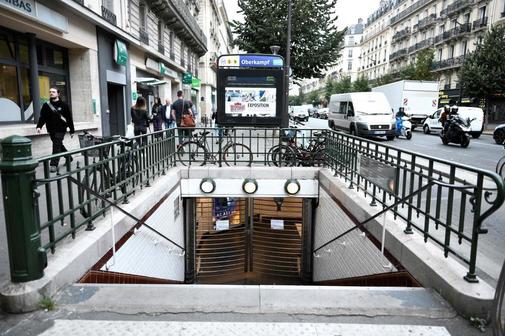A massive strike in public transport has left the French capital (almost) without public transport. It is the first trade union response to the Government's plans to reform retirement that includes ending the 42 special regimes, including that of the RATP workers in Paris that manages metro, buses and trams.
Ten of the 16 metro lines of the capital are closed to lime and song. In four runs a third of the usual trains but only at peak times. In the other two, normal ... are the automatic meters that have no driver. Only one third of the buses circulate. But, more importantly, the two RER lines, the suburbs, are closed.
The municipality of Paris has only 2.2 million inhabitants. But up to 10.6 million live in the Greater Paris area. The Ile-de-France region that is equivalent to our communities (with much less skills) totals 12.4 million.
The number of trips is, consequently, brutal. For example, line A of the RER that runs from east to west is 109 kilometers long, where more than 300 million travelers per year travel between its 43 stations.
So, a massive strike like today is a serious disturbance. Therefore, there are about 285 kilometers of traffic jams on the access roads to the capital, much more than double a usual day.
The good news is that the strike will only last 24 hours. Away from the entire strike month of the autumn of 1995 when the unions challenged the government of Alain Juppé, under the presidency of Jacques Chirac, who wanted to reform the labor regime of railway workers.
A strike like today was not seen in Paris since October 2007 ... when President Nicolas Sarkozy wanted to get hold of special regimes.
In fact, unemployment is the first in a series of protests against retirement reform. And singularly against the electoral promise of President Emmanuel Macron to end the 42 special regimes and merge them into one with calculation by points.
The Government, scalded by the protests of the yellow vests of the past year, walks on lead feet. He has talked with the unions for months and Prime Minister Edouard Philippe announced on Thursday another round of dialogue. He has also postponed the parliamentary debate until spring ... once the municipal elections have passed.
Public transport workers retire (on average) at 55.7 years compared to 63 in the common system. His problem, as a recent report by the Court of Auditors has pointed out, is that in order to balance his accounts he needs the State to subsidize him: up to 57% of the regime's resources come from there. That is, the State transfers money that comes from everyone's taxes to a system that benefits public workers. I mean, Macron is (quite) right.
According to the criteria of The Trust Project
Know more- TV
Conflict Returns, two hours after calling off, the strike of Iberia in El Prat for this weekend
ParosNi a day without strike at airports this September
Conflict: This weekend kicks off the wave of end-of-summer air strikes with the strikes in El Prat

